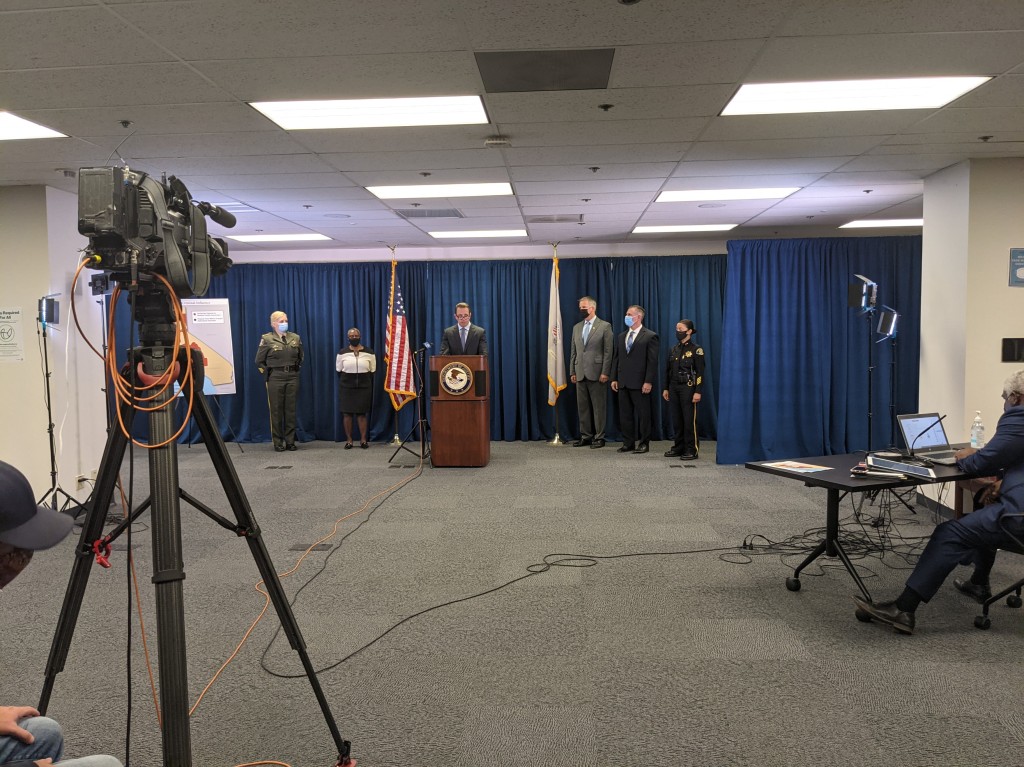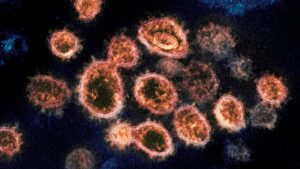OAKLAND — Now that the alleged leaders of one of California’s four dominant prison gangs have been indicted on racketeering charges, they’re doing their best to return to their cells in California’s prison system.
In legal motions filed over the past four weeks, defense attorneys for 15 alleged members of the Nuestra Familia — the prison gang that governs the Northern California-based Norteño and Northern Structure gangs — have decried conditions at United States Penitentiary Atwater, where they’re currently being held. They’ve described the conditions as “solitary confinement,” and “torturous,” lacking basic hygiene and being ill-equipped for regular visits with attorneys.
The lead defendant, David Cervantes, is 73 years old, requires a wheelchair, and can only stand for brief periods of time with the assistance of a cane. But federal prosecutors have described him as one of the most dangerous prisoners in all California, labeling him one of seven men on the Nuestra Familia’s general council who has the ability to order murders and allegedly directed a massive criminal organization from his state prison cell, with the help of contraband cellphones.
Cervantes is not the only defendant who requires a wheelchair. So does James “Conejo” Perez, 67; the two are currently being forced to take turns using USP Atwater’s lone disability cell. When they’re transferred back and forth every few weeks, they’re handcuffed and cannot move without the help of staff, according to their attorneys.
“There is no legitimate security reason for defendants’ prolonged solitary confinement,” reads a motion signed by 15 defense teams. “To the extent that Atwater in particular requires the defendants be placed in solitary confinement, the answer is simple: they should be moved to a facility capable of holding them without violating their constitutional rights.”
The defendants were transferred from prisons around the state to Atwater last year, after they were indicted as part of a multi-headed federal prosecution aimed at taking down the Nuestra Familia. There have been other similar attempts at doing just that; the infamous Operation Black Widow case of the early 2000s saw several leaders of the gang be prosecuted and moved federal prisons far from California, where they supposedly have less control. This latest prosecution includes the men who prosecutors say replaced the Nuestra Familia’s leadership after the Black Widow case.
In their response to the defense motion, federal prosecutors have put forth these arguments: that it would be a logistical nightmare to relocate the defendants to state prisons around California, that it is up to the U.S. Marshals Service — not a federal judge — where to house these pretrial detainees, and that other suitable locations, like Santa Rita Jail in Dublin, refused to take these men, while agreeing to house others who’d been indicted in the same investigation.
“The decisions to house the defendants at USP Atwater and to determine the appropriate conditions of confinement were made pursuant to the sound discretion of the USMS and USP Atwater, and were not made to punish the defendants or otherwise infringe upon their rights,” prosecutors wrote in a response motion.
A federal judge is set to rule on the motion in March.
Meanwhile, the next major legal battle in the case is on the horizon: In one motion, attorneys made reference to several defendants having “an uncounseled (sic) interview with federal agents at Moffett Federal Airfield,” before they were brought to USP Atwater. They’ve said this interview violated the Sixth Amendment and may be the basis for dismissal motions in the future.
Meanwhile, one of the only alleged Nuestra Familia members who wasn’t already in state prison has lost his bid for pretrial release. Rocky Bracamonte, 37, was ordered detained after prosecutors argued he was selling cocaine and heroin in large amounts and that an “arsenal” of guns and ammunition were at his home. His defense attorney argued that prosecutors were using alleged gang membership to bolster an otherwise meritless detention request, and denied all of the prosecution’s allegations against him, up to and including that his nickname in the gang is “Fox.”
Another of the defendants, Salvador Castro, pleaded guilty and was sentenced to decades in federal prison in an unrelated federal case that stemmed from him arranging drug deals from a state prison cell, using contraband phones. Castro was sentenced last year, just four months before he was indicted in this case.
In court records, his attorney, Marc Days, detailed Castro’s rough upbringing in a plea for leniency, giving a glimpse of how a child can grow up to be an influential member of a violent prison gang. Days wrote that Castro only learned to read and write as a young man in the state prison system.
“As a child, his basic necessities were not met, he resorted to stealing clothes and food to survive,” Days wrote. “He was sent to juvenile hall and then the California Youth Authority, unsafe environments where fighting was normal and necessary to survive.”



















